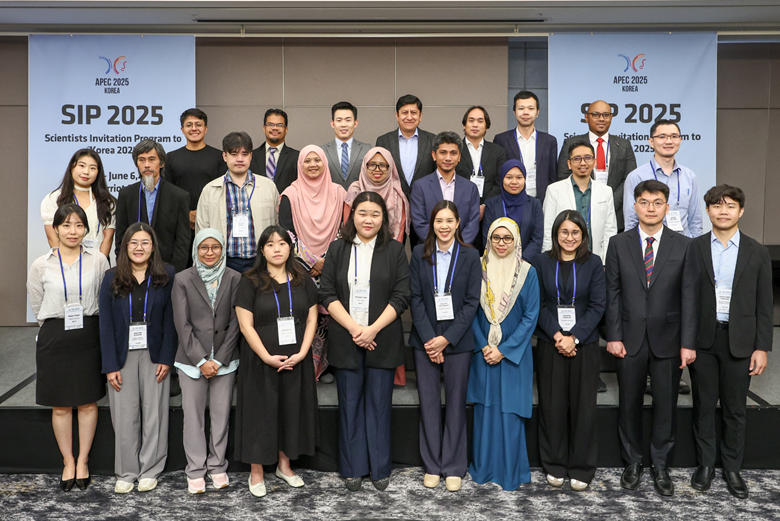APEC Opens Scientist Exchange Program in Korea

APEC has kicked off a new exchange program to boost cross-border research, with Korea hosting the first cohort of scientists in Seoul this year. The Scientist Invitation Program to Korea 2025 marks the first program under the APEC Scientist Exchange Initiative, a new regional effort to enhance scientific mobility and long-term collaboration.
This is the first time APEC has launched a dedicated mobility track for scientists, signaling a significant step toward institutionalizing scientific exchange as part of the region’s broader agenda for inclusive innovation and sustainable growth.
Funded and implemented this year by the Ministry of Science and ICT of the Republic of Korea, the program supports researchers from APEC member economies through structured training and joint research opportunities. It also offers streamlined visa application processes and fast-track entry and exit at Korean ports of entry.
The launch comes at a time when economies are navigating post-pandemic recovery, an accelerating digital transformation and rising demand for interdisciplinary scientific talent. By investing in mobility and peer exchange, the program responds to calls for deeper regional cooperation in science and technology.
“Capacity building and exchange programmes empower scientists to share knowledge, foster innovation and create solutions that transcend borders, driving global progress through shared mission collaborations via human-to-human exchanges,” said Hazami Habib, Vice Chair of the APEC Policy Partnership on Science, Technology and Innovation (PPSTI).
“This could lead to not only enhanced connectivity but also significant impacts across the APEC region. The Scientist Invitation Program to Korea 2025 is a commendable initiative which stimulates further interest in collaborative research within the region,” Habib added.
“Korea has emphasized the importance of innovation driven by cultivating science and technology talent,” said Sunghoon Hwang, Director General for International Cooperation at Korea’s Ministry of Science and ICT. “We hope that the Scientist Invitation Program will enable scientists from Korea and participating APEC members to build research networks and create scientific collaboration opportunities across the region, particularly with Korea.”
The program offers two distinct pathways for participation. The first is a 10-day capacity-building track that includes mentoring, expert lectures and policy discussions to support future collaboration. The second is a 90-day research placement, where participants conduct joint research at leading Korean institutions. Eligible applicants must hold a PhD or a master’s degree with at least three years of relevant professional experience.
The first session, focused on physics, ran from 26 May to 6 June in Seoul. It brought together 21 researchers and professors from Malaysia, Peru and Thailand, who engaged in lab visits, including the Center for Quantum Nanoscience at Ewha Womans University, and took part in cultural experiences that strengthened professional and personal ties.
"This program will help me to have an international collaboration. I feel good, and this is a good opportunity for me,” said Dr Nuttawadee Intachai, a lecturer at Chiang Mai University in Thailand who participated in the session.
The second session, focused on chemistry and involving scientists from Indonesia and the Philippines, concluded on 27 June. Upcoming sessions in earth sciences and life sciences, along with the first round of 90-day research placements, are set to begin in July.
With up to 100 scientists expected to participate this year, the Scientist Invitation Program is laying the groundwork for a more connected, collaborative, and innovation-driven APEC region.
The broader initiative also includes plans for an APEC Scientist Travel Card, modeled after the APEC Business Travel Card. Once developed, the card would streamline mobility for scientists attending conferences, seminars, or joint projects by facilitating visa-free or expedited entry. More information is available on the official program website.
For media inquiries, please contact: [email protected]

